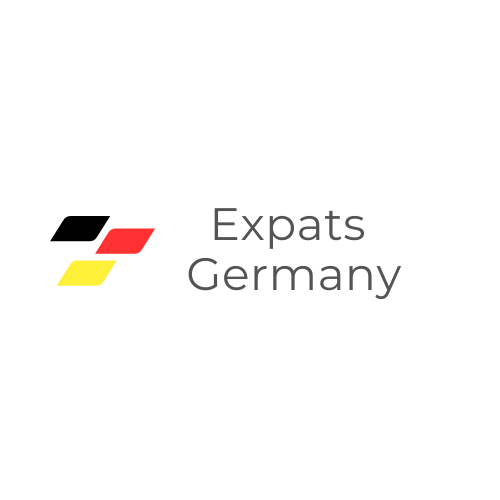How to find a Job in Germany

Germany offers excellent career opportunities for both local and international job seekers. Whether you are already in the country or planning to relocate, this guide will walk you through the essential steps to find a job in Germany.
Which Documents You Need to Include in a Job Application in Germany
When applying for jobs in Germany, it’s crucial to have the right documents to make a strong impression on potential employers. The most commonly required documents include:
By presenting a comprehensive and well-organized set of documents, you will enhance your chances of catching the attention of potential employers and positioning yourself as a highly qualified and motivated candidate for the job. Remember to customize your application for each position and company, ensuring that your skills and experiences align with the specific requirements of the role.

How to Write a German CV
A German CV, known as “Lebenslauf,” follows specific conventions to ensure that it effectively showcases your qualifications and professional background:
1. Personal Information: Start your CV with essential personal details, including your full name, contact information (address, phone number, and email), and a professional photo. The photo should be a recent, passport-style headshot that presents you in a formal and professional manner.
2. Professional Experience: List your work experience in reverse chronological order, starting with your most recent position. For each entry, include the company name, your job title, and the dates of employment. Provide a brief description of your responsibilities and accomplishments in each role, emphasizing your key achievements and contributions. Use action verbs to convey your impact and the value you brought to the organization.
3. Education: Include a section for your academic qualifications, mentioning the degrees you obtained and the institutions you attended. List your education in reverse chronological order, starting with the highest degree earned. If you have relevant certifications or additional training, include them in this section as well.
4. Skills: Highlight your language skills, IT proficiency, and any other relevant abilities that align with the job requirements. Use a bullet-point format to make this section easily scannable for recruiters.
5. Hobbies: While mentioning hobbies can show your personality and interests, keep this section brief and relevant to the position you’re applying for. Focus on hobbies that demonstrate skills or qualities that could be beneficial in a professional context, such as teamwork, leadership, or creativity.
6. Format: Use a simple and clear layout for your CV, avoiding overly complex designs or fonts. Aim to keep your CV concise, typically limited to no more than two pages. Use clear headings and subheadings to organize the different sections of your CV, making it easy for recruiters to find the information they need quickly.
How to Write a German Cover Letter/Motivation Letter
The cover letter, also known as “Anschreiben,” is a vital component of your job application in Germany, providing you with the opportunity to make a compelling case for your candidacy:
1. Address Correctly: Begin your cover letter by addressing it to the hiring manager or HR representative by name. If the name is not specified in the job posting, make an effort to find out who the appropriate person is. Addressing the letter to the right individual shows your attention to detail and personalizes your application.
2. Introduction: Grab the reader’s attention with a strong opening that showcases your enthusiasm for the position. Mention the specific job title and briefly state how you learned about the opportunity. Use this section to establish a positive and engaging tone right from the start.
3. Professional Experience: Emphasize your relevant experiences and achievements that align with the requirements of the role. Use specific examples to demonstrate how your skills have contributed to your previous employers’ success. Avoid simply restating your CV; instead, delve deeper into your accomplishments and how they make you a valuable asset to the prospective employer.
4. Skills and Qualifications: Showcase your key skills and qualifications that directly match the job description. Address the company’s needs and show how your expertise can address their challenges and contribute to their objectives. Be concise and focus on the most relevant skills that set you apart as an ideal candidate.
5. Interest in the Company: Express genuine interest in the company and its values. Conduct thorough research about the organization’s mission, culture, and recent achievements, and mention specific aspects that resonate with you. Demonstrating that you’ve done your homework illustrates your dedication and commitment to becoming a part of the team.
6. Conclusion: End your cover letter with a strong closing paragraph. Politely request an interview to further discuss how your skills and experiences align with the company’s needs. Express your gratitude for their time and consideration, and indicate your availability for an interview at their convenience.
Crafting a well-structured and persuasive Anschreiben showcases your motivation, enthusiasm, and suitability for the job. Tailor each cover letter to the specific company and role you’re applying for, ensuring that your personality shines through while addressing the employer’s needs and demonstrating your potential value to the organization. Remember to proofread your letter carefully to eliminate any errors or typos, as attention to detail is crucial in the application process.

What Does the Recruitment Process Look Like in Germany?
The recruitment process in Germany is typically a well-structured journey that involves the following key steps:
1. Job Application: Begin by submitting your application, which usually consists of your tailored CV and a compelling cover letter. Companies often prefer applications to be sent through their online portals or via email. Pay close attention to the application instructions and ensure that your documents are error-free and formatted appropriately.
2. Selection: After receiving applications, the company’s HR team reviews them to shortlist candidates who meet the job requirements and showcase a strong potential fit for the organization. This initial screening phase helps identify individuals whose qualifications align closely with the role.
3. Interviews: Successful candidates from the initial screening will be invited for interviews. The interview process can vary depending on the company and the position. It may involve one or multiple rounds of interviews, which could include face-to-face meetings, video interviews, or even panel interviews with HR representatives and potential colleagues.
4. Assessment Tests: In certain cases, companies may conduct assessment tests to further evaluate candidates’ skills, competencies, and problem-solving abilities. These tests could be related to technical skills, cognitive abilities, or even situational judgment scenarios. Be prepared to showcase your expertise through these evaluations.
5. Job Offer: If you perform impressively during the interviews and assessment phase, you may receive a formal job offer from the company. The offer will outline the details of the position, salary, benefits, and other essential terms of employment. Take your time to carefully review the offer and consider negotiating certain aspects, such as salary, vacation days, or starting date, if necessary.
Remember that the recruitment process in Germany values professionalism, punctuality, and attention to detail. Respond promptly to interview invitations and express gratitude for the opportunity to interview. Showcase your enthusiasm for the role and the company’s values during interviews, and be prepared to discuss how your skills and experiences align with the organization’s objectives.
Navigating the recruitment process with confidence and professionalism increases your chances of securing a rewarding position in a German company. Each step of the process provides an opportunity to demonstrate your capabilities and passion for the role. Stay proactive, well-prepared, and positive throughout the process, and don’t hesitate to follow up with the company after interviews to express your continued interest.
Where to Look for Jobs in Germany
Germany offers a plethora of channels to find a Job in Germany. Here we present some of the most popular options.
Always remember that persistence and patience are essential in the job-hunting process. Customize your applications for each position to demonstrate your genuine interest and suitability for the role. Investing time and effort to learn the German language will also give you a competitive edge, as many employers value language proficiency, especially for roles involving direct interaction with customers or clients.
Networking is a powerful tool in Germany, as personal connections often play a significant role in securing job opportunities. Actively engage in professional groups, forums, and social media platforms relevant to your industry to build meaningful connections and stay updated with industry trends.
Lastly, stay positive and motivated during your job search. It might take time to find the perfect job that aligns with your skills and aspirations, but each application and networking opportunity brings you closer to success. Keep refining your approach, be open to feedback, and adapt your strategies based on the changing job market.
With determination and a proactive mindset, you’ll pave the way to a rewarding career in Germany. Good luck on your job search journey!

What Happens After You Get Hired by a German Employer
Congratulations on securing a job in Germany! Your new adventure is about to begin, and here are some essential steps to consider:
1. Work Contract: Carefully review your work contract to understand your job responsibilities, working hours, salary, and other employment terms. Seek clarification if needed and sign the contract once you’re satisfied with the conditions.
2. Work Visa and Residence Permit: If you are not an EU citizen, you’ll need to apply for a work visa and residence permit to legally work in Germany. Contact the German embassy or consulate in your home country to initiate the visa application process.
3. Relocation and Housing: Prepare for your relocation to Germany by organizing your move, whether you’re shipping your belongings or starting fresh. Begin your search for suitable accommodation that meets your needs and budget. Consider temporary housing options, such as serviced apartments or shared flats, until you find a permanent residence.
4. Health Insurance: Health insurance is mandatory in Germany, and you’ll need it to access medical services. Research various health insurance providers and choose a plan that offers comprehensive coverage for your needs.
5. Registration: After arriving in Germany, you must register your residence with the local authorities within a specific timeframe. This process, called “Anmeldung,” is essential for various official matters, such as obtaining a tax identification number and opening a bank account.
6. Familiarize Yourself with German Culture: Take the time to learn about German culture, customs, and workplace etiquette. Understanding these aspects will help you integrate smoothly into your new environment.
7. Language Learning: While many Germans speak English, learning some German will enhance your daily life and interactions, both professionally and socially.
Embrace this exciting chapter of your life with enthusiasm and a willingness to adapt to a new culture. Building connections with colleagues and fellow expats can provide invaluable support as you settle into your new work and life in Germany. Take advantage of the diverse cultural experiences Germany offers, and make the most of your time exploring its rich history, stunning landscapes, and vibrant cities.
By following this comprehensive guide, you’ll be well-prepared to embark on your journey to finding a rewarding job and thriving professionally in Germany. Best of luck, and may your time in Germany be fulfilling and prosperous!





